The following are five each of my favorite male and female performances in 2017. There are plenty more to choose from, but Daniel Day-Lewis seems too obvious.
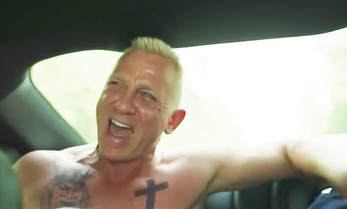
Some of my favorite performances of the year are actors squarely in their wheelhouses, spectacularly doing what I expect them to do. Daniel Craig as Joe Bang in Logan Lucky is not one of those actors. By going big and broad as a reedy-voiced Appalachian who's far more intelligent than he lets on, Craig is shedding more than a decade his dour James Bond take and having what appears to be the most fun he's ever had in a film. The effect is joyous uplift in a film that's already pretty joyous.
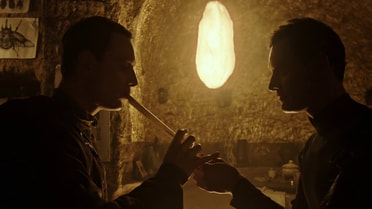
Alien: Covenant is dramatically uneven scene to scene, but in his corner of the film, Michael Fassbender is always reliable. In a dual role as the malevolent android David and passive android Walter, Fassbender can't hide the tiny facial expressions that bely what's supposed to be a robotic entity. As the less-constrained android, David is attracted to his doppelganger because of course he is, leading to one of the best lines of the year (I'll do the fingering). Alien: Covenant is relying heavily on the Lucifer story, and there are few actors more seductive than Fassbender.
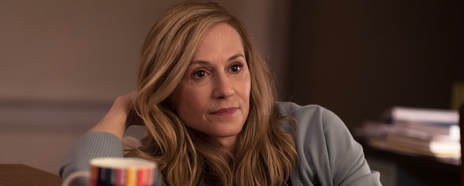
The cinema of 2017 gave viewers several voracious performances by middle-aged actresses. If the best roles they can get do in a pre-MeToo Hollywood are mothers of adult children, then they're going to dominate them and make them their own. Holly Hunter played just such a role in The Big Sick. As the mother of a comatose daughter, she is an advocate's advocate, demanding the best for her child and circling those who would withhold from her like a wild predator. She reveals herself to also be warm and decent to anyone she would fold under her wingspan. It's a magnetic performance that's Poochie-like. Every time she's offscreen, the viewer wonders when she's coming back.
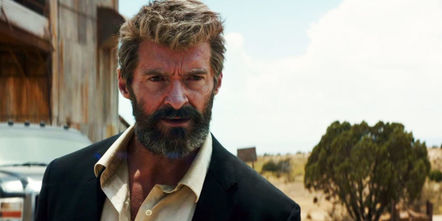
After nine movies in which he's played the titular character in Logan, Hugh Jackman knows what he's doing. He's got the cadence and the gait down, as well as the feral rage lurking beneath the surface. What he brings to his final outing as the character is a well-earned exhaustion and a resignation, both of which he struggles to free himself from over the course of the film. Logan was the most emotionally affecting film of the year, primarily thanks to Jackman's portrayal of two goodbyes he's forced to give thanks to events that are beyond his control. To see a character that's so powerful be made so powerless is wrenching, and Jackman ensures that the tears are earned.
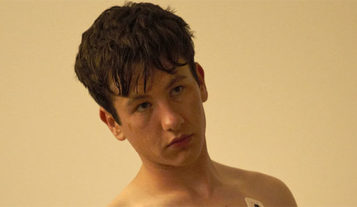
The films of Yorgos Lanthimos aren't the place for big emotions. Every actor that works with him is going to have to affect a flat voice that's primarily used for exposition or bald statement of feeling. The tension in his films is the distance between that odd honesty and whether or not the character feels compelled to be that way. In The Killing of a Sacred Deer, Barry Keoghan is perfectly suited to Lanthimos. He maintains the plain enunciation of his goals and actions that everyone else does, but he has none of that tension. As the character most in control of what he wants, he has an eerie confidence that the perfect-looking family he targets intrinsically lacks.
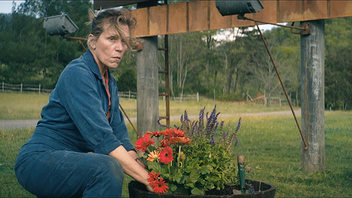
The rageful center of a bitterly angry film, Frances McDormand's Mildred comes by her wrath honestly. Three Billboards Outside Ebbing, Missouri judiciously parcels out details about Mildred's daughter's brutal murder, painting a cruel picture that Mildred isn't content to sit and stare at. McDormand brings all that bile into every confrontation, whether she's yelling at incompetent cops or spitting in a dentist's fat face. She also brings a readiness to put all that aside, changing her tune when someone else allows themselves to be vulnerable in front of her. Her Mildred is a character that wants desperately for the world to be better. She wants to hang onto any opportunity to see it as such, but the burned, colder part of her knows that's just not the way it is. McDormand's pulsating anger is palpable, but her hope is what sells the character.
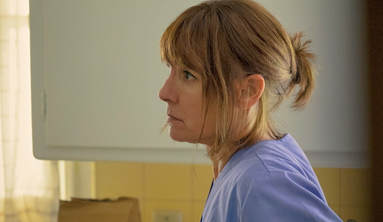
Another of the aforementioned mom roles, Laurie Metcalf's Marion in Lady Bird is a put-upon matriarch, good at her job but still clinging to solvency. With a husband out of work, an adult son stuck in neutral, and a daughter talking about attending expensive private schools, the family's economic burden falls on her. Metcalf is best known for her work on Roseanne, another work about a lower-class family, and she might have been able to coast on that prior experience. Instead, Metcalf makes the viewer long for a sympathetic film about her, one where she stomachs the insults her daughter throws at her family's lack of money but soldiers on anyways. She tells hard truths to her family, but there's enough love in her voice to soften the blow. Like Robbie, Metcalf's big close-up is a breathtaking moment of acting as she tries to keep holding it all together, and finally failing.
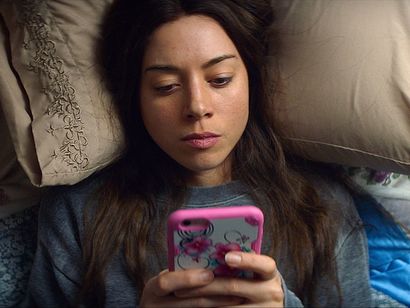
An actress who deserve to break out after the year she just had, Aubrey Plaza played her classic deadpan in The Little Hours and let loose as a dark figure in Legion on TV. Ingrid Goes West finds Plaza putting her marker down as a force worth paying attention to, running the gamut from delirium to pathos to seduction. Playing an anti-hero addled by performative social media, her Ingrid is near-sociopathic in her pursuit of Instagram likes and Twitter followers. Plaza plays her as aggressively shallow and in deep need of validation without any worthy path to get it. She does hateful things in Ingrid Goes West, but Plaza's charisma keeps the viewer from rooting for her failure. It takes a great talent to make the viewer celebrate with a protagonist over something as silly as tagged photo.
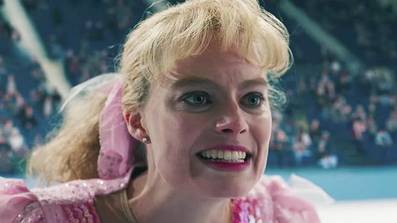
Tonya Harding's a public figure who's used the publicity from I, Tonya to remind the public how inscrutable and slippery she is, belying the conciliatory story the film about her tries to tell. Margot Robbie's Tonya Harding doesn't have that kind of guile, wearing her heart on her sleeve as she skates and rages and withstands the abuse of those around her. There's desperate elation on her face when everything's going well, and badly-hidden dejection when things aren't. Robbie's centerpiece scene of staring in a mirror and attempting to put her public face on amidst the ugliness swirling around her keeps this flawed film in the air.
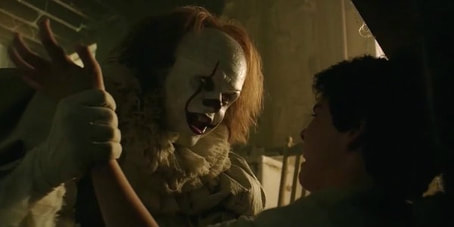
A horror film throwback that's as much fun as it is scary, It can attribute much of its success to Bill Skarsgard as Pennywise the Dancing Clown. Every facial tic and movement is calculated to unsettle. Skarsgard plays him as a slavering beast wearing a loose-fitting costume, his feral nature poking out of his skin or his clothes at every opportunity. Pennywise feasts on the fear of children and with Skarsgard inhabiting him, it's an all-you-can-eat buffet.
 RSS Feed
RSS Feed